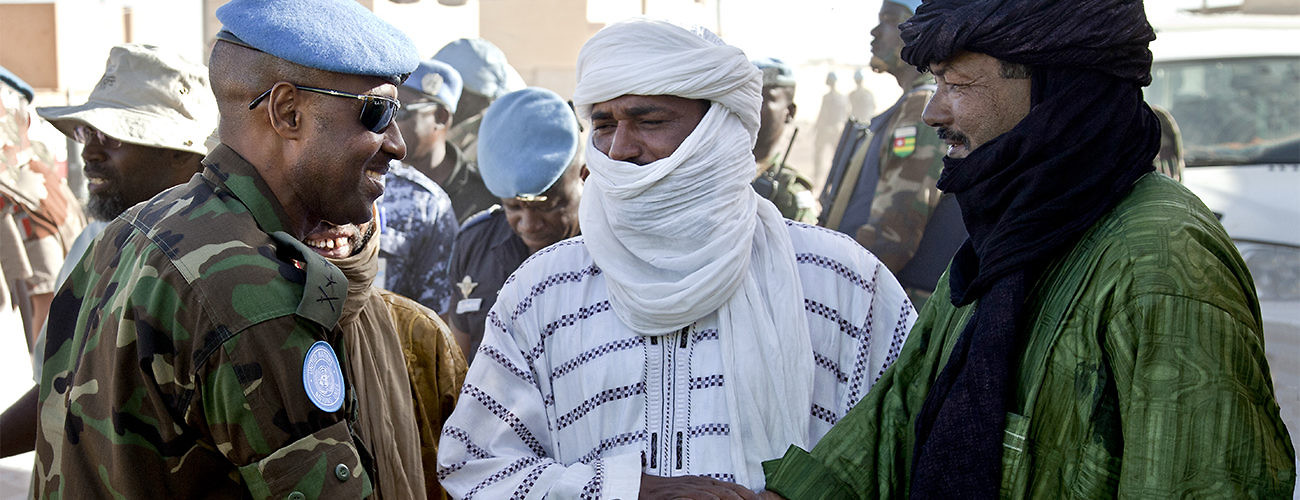Major General Jean Bosco Kazura (left), force commander of the UN Multidimensional Integrated Stabilization Mission in Mali (MINUSMA), meets with representatives of the National Movement for the Liberation of Azawad (MNLA) and the High Council for the Unity of Azawad (HCUA) in Kidal, northeastern Mali, November 14, 2013. UN (Photo/Marco Dormino)
Engaging non-state armed groups (NSAGs) is an essential tool for the protection of civilians (POC), a priority mandate and core objective for peace operations. Beyond the use of force to prevent or stop armed groups from threatening local populations, multidimensional missions can use a wide range of unarmed strategies, such as dialogue and engagement, to counter hostilities from non-state actors.
This paper looks at how, when, and why UN missions engage with NSAGs. It gives an overview of current practice, drawing on the experiences of the missions in Afghanistan, the Central African Republic, the Democratic Republic of the Congo, and Mali. It then examines the risks of engaging NSAGs and how POC mandates can help missions navigate these risks. Finally, it looks at peace operations’ unique capacities to engage with NSAGs and how best to leverage them.
Civilian protection is ever more urgent, and engaging NSAGs is crucial to this work. A pragmatic approach, anchored in POC considerations, can help guide missions through potentially polarizing debates and safeguard UN principles while simultaneously allowing them to adapt more effectively to the challenges they face.








